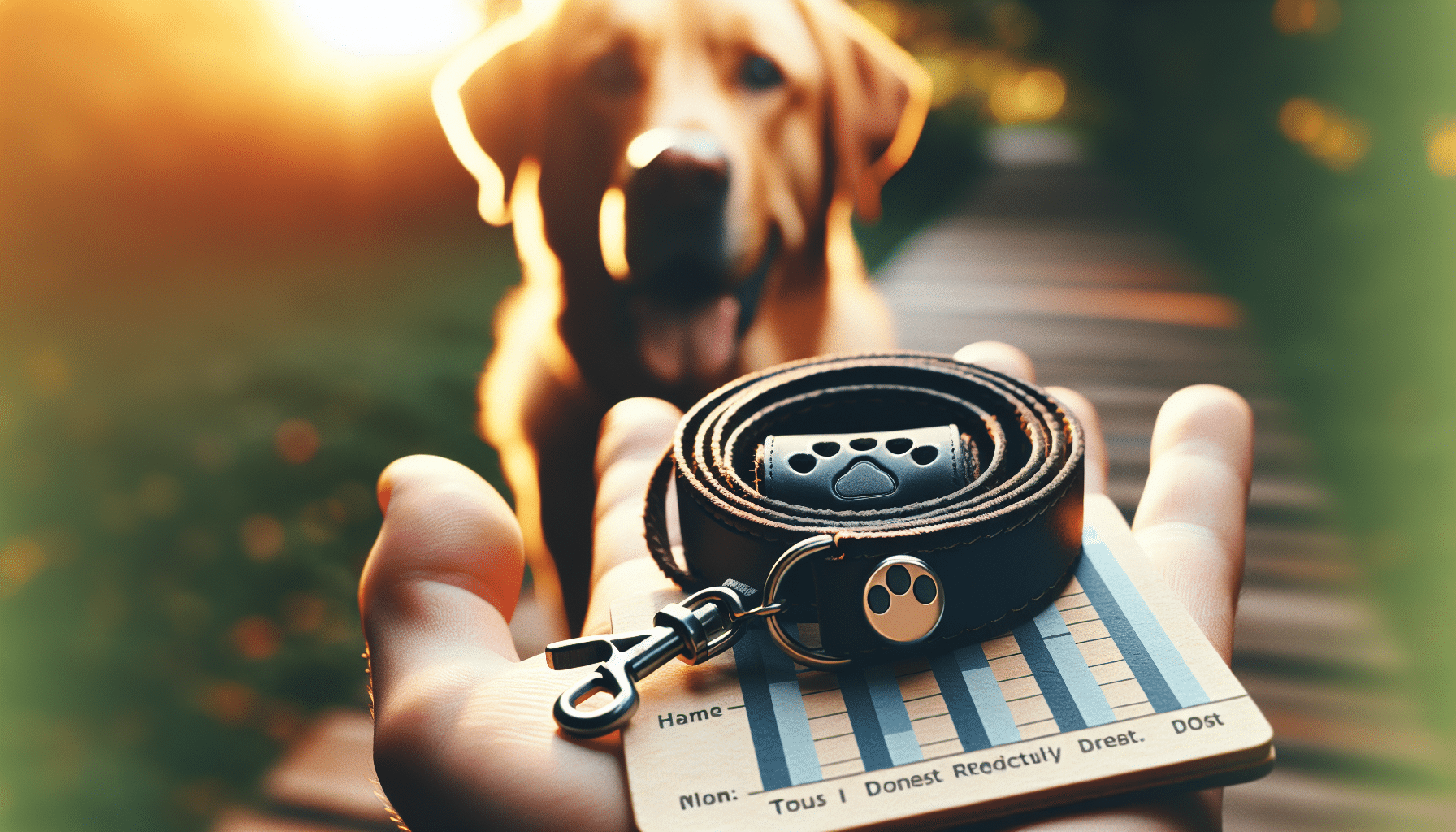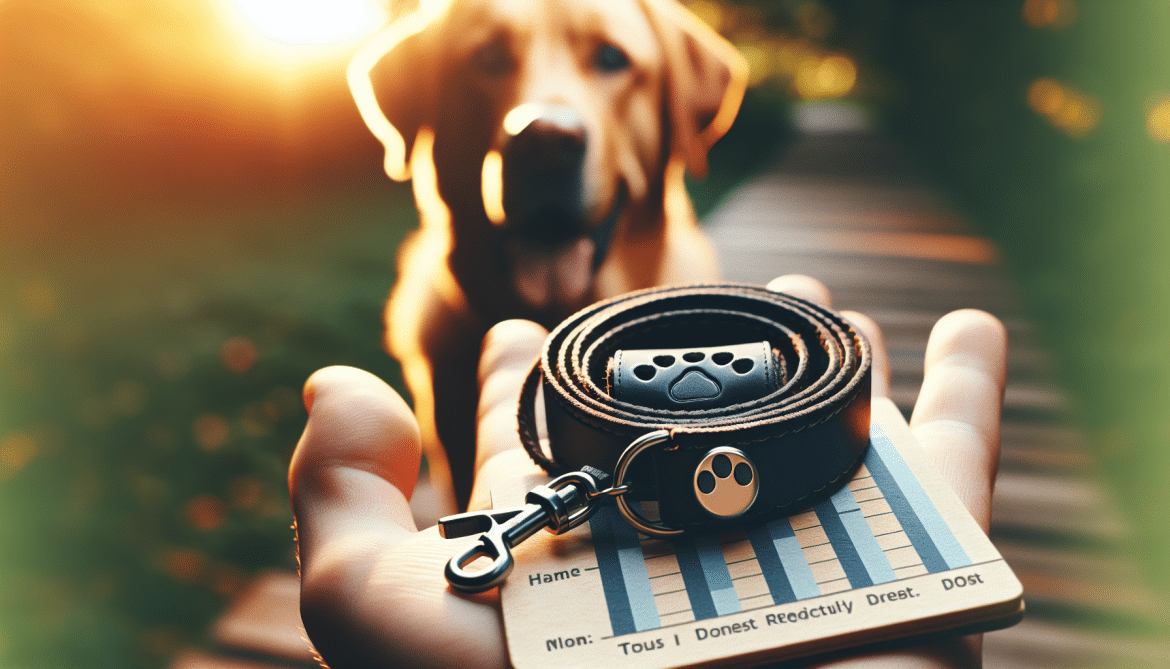In the world of dog training, consistency is the vital ingredient that unlocks the door to success. Whether you're teaching your furry friend a new trick or trying to break a bad habit, maintaining a consistent approach is absolutely crucial. By providing clear expectations and reinforcement, you not only establish a strong foundation for learning but also strengthen the bond with your canine companion. This article explores the significance of consistency in dog training and how it can lead to remarkable results that will have tails wagging with joy.
Why Consistency is Key in Dog Training
Training your dog is an essential part of being a responsible pet owner. It not only helps to ensure their safety and well-being but also strengthens the bond between you and your furry friend. One crucial factor that plays a significant role in successful dog training is consistency. By being consistent in your training methods and approach, you can establish trust and communication, build strong habits, reduce confusion and anxiety, promote the generalization of skills, encourage positive behavior, avoid reinforcement of unwanted behavior, create a structured routine, enhance training progress, strengthen the human-canine bond, and improve the overall efficiency of the training process.
This image is property of images.unsplash.com.
Establishing Trust and Communication
Consistency in dog training is vital for establishing trust and effective communication between you and your canine companion. When you consistently use the same commands, your dog learns to recognize and understand them more easily. By using consistent body language alongside verbal commands, you can reinforce your dog's comprehension and response to your cues. Repetition of training methods also helps your dog learn and retain information better, as they become familiar with the patterns and expectations of the training sessions.
Building Strong Habits
Consistency in dog training is instrumental in building strong habits. Dogs learn through repetition, and by consistently implementing a reward system, you can reinforce positive behaviors and help your dog understand what is expected of them. By conducting repeated training sessions, you provide your dog with the necessary practice and reinforcement to internalize the desired behaviors. Moreover, following a consistent daily schedule for your dog's meals, walks, and playtime establishes a sense of routine and stability, which helps your dog feel secure and confident.

This image is property of images.unsplash.com.
Reducing Confusion and Anxiety
Consistency in dog training plays a crucial role in reducing confusion and anxiety for your furry friend. By avoiding mixed messages in your training approach, you provide clear and consistent signals to your dog, making it easier for them to understand and respond appropriately. Inconsistent training methods or instructions can create uncertainty and frustration for your dog, leading to heightened anxiety during training sessions. By preventing inconsistency-related stress, you create a more relaxed and positive learning environment for your dog.
Promoting Generalization of Skills
Consistent training environments, socialization, and exposure to different situations are vital for promoting the generalization of skills in your dog. By consistently training your dog in various settings, both at home and in public, you enable them to generalize their learned behaviors to different contexts. Similarly, consistent socialization with other dogs and people helps your dog become more adaptable and confident in new situations by reinforcing positive experiences and interactions.

This image is property of images.unsplash.com.
Encouraging Positive Behavior
Consistency is key when it comes to encouraging positive behavior in your canine companion. By consistently reinforcing desirable actions through rewards, such as treats or praise, you provide clear feedback to your dog about what behaviors are desired. It is also crucial to consistently discourage undesirable behavior by redirecting your dog's attention or utilizing appropriate consequences. By using consistent consequences for actions, your dog learns to associate specific behaviors with predictable outcomes, leading to more consistent and desirable behavior.
Avoiding Reinforcement of Unwanted Behavior
Consistency is equally important in avoiding the reinforcement of unwanted behavior. Consistently ignoring unwanted actions, such as jumping on furniture or barking excessively, helps your dog understand that these behaviors will not elicit attention or rewards. It is crucial to avoid inadvertently reinforcing unwanted behavior by remaining consistent in your response and not rewarding or engaging with your dog when they engage in such behaviors. By consistently withholding reinforcement for unwanted behavior, you can effectively discourage and modify these behaviors over time.

Creating a Structured Routine
Consistency in dog training extends beyond the training sessions themselves. Establishing a structured routine for your dog's daily activities, such as feeding and potty breaks, exercise, playtime, and sleeping arrangements, helps create a predictable and stable environment for your furry friend. Consistency in these aspects of your dog's routine provides them with a sense of security, reduces anxiety, and contributes to their overall well-being. A structured routine also facilitates the integration of training into their daily lives, making it easier to reinforce desired behaviors consistently.
Enhancing Training Progress
Consistent and structured training approaches enhance the progress of your dog's training. By building on previously learned knowledge and skills, you can gradually increase the difficulty level of training exercises and commands. Consistent training sessions allow your dog to practice and reinforce their training regularly, leading to faster skill acquisition and retention. Moreover, by maintaining consistency in your training methods, you avoid confusing your dog and minimize the likelihood of training setbacks. A smooth flow of consistent training ultimately contributes to the overall effectiveness and efficiency of the training process.

Strengthening the Human-Canine Bond
Consistency in dog training not only benefits your dog's behavior but also strengthens the bond between you and your furry friend. When you consistently provide clear expectations and feedback, your dog learns to trust and rely on you. By consistently reinforcing positive behavior, you build a positive association with training and create a deeper connection with your dog. The consistent interaction and mutual understanding developed through training help foster a strong and trusting bond between you and your four-legged companion.
Improving Training Efficiency
Consistency in dog training improves the efficiency of the training process. By following consistent training methods and approaches, you provide clear signals and expectations to your dog, minimizing confusion and increasing the speed at which they learn new skills. Consistency also helps reduce the occurrence of unwanted behaviors, allowing you to focus on reinforcing positive actions and behaviors. With fewer training setbacks and a smoother flow of consistent training, you can make the most of your training sessions and achieve the desired results more efficiently.
In conclusion, consistency is key in dog training for various reasons. By establishing trust and communication, building strong habits, reducing confusion and anxiety, promoting the generalization of skills, encouraging positive behavior, avoiding reinforcement of unwanted behavior, creating a structured routine, enhancing training progress, strengthening the human-canine bond, and improving the overall efficiency of the training process, consistency plays a crucial role in shaping your dog's behavior and fostering a harmonious relationship between you and your furry friend. So, be consistent, patient, and kind in your approach to dog training, and you will reap the rewards of a well-trained and happy canine companion.



